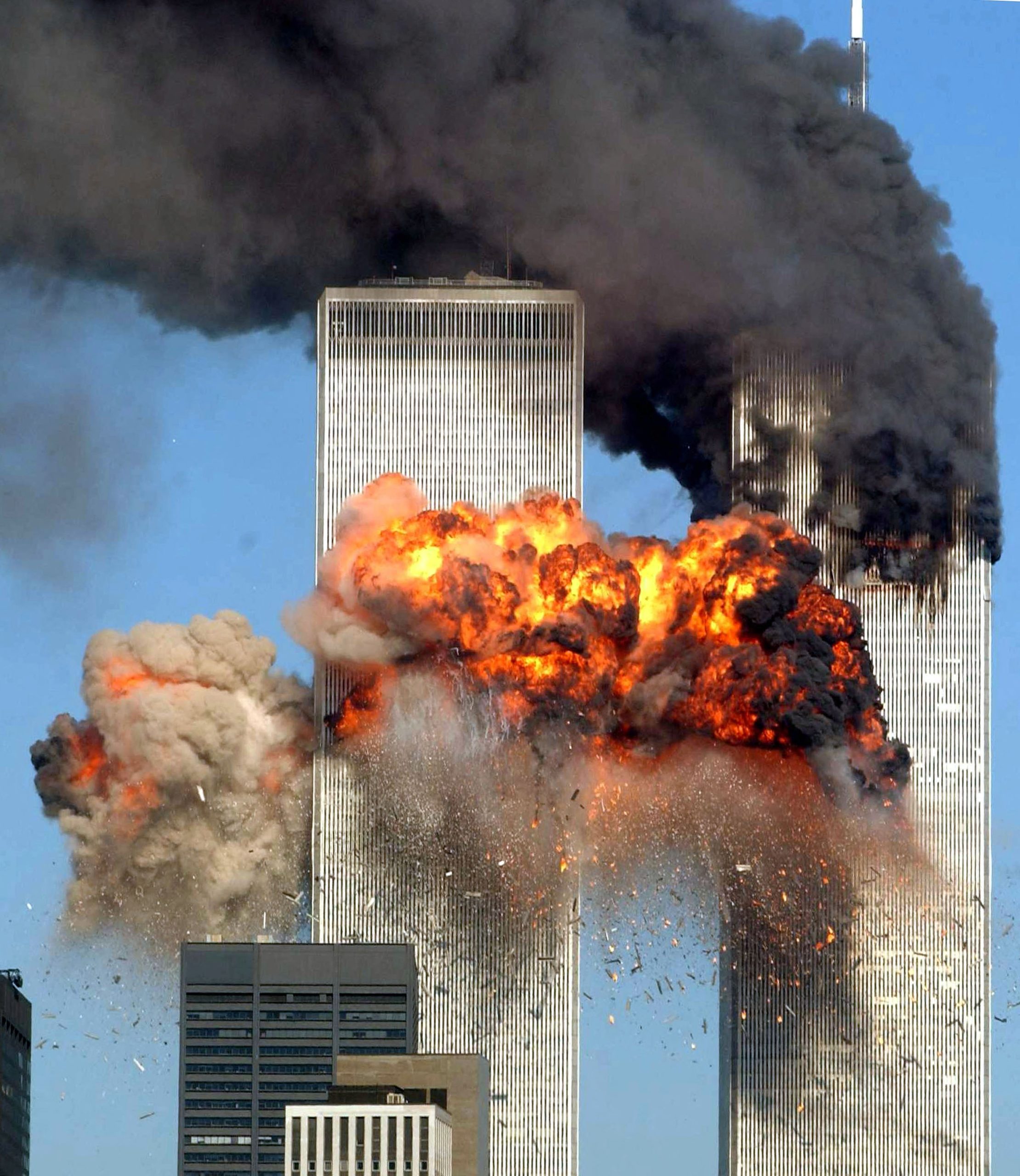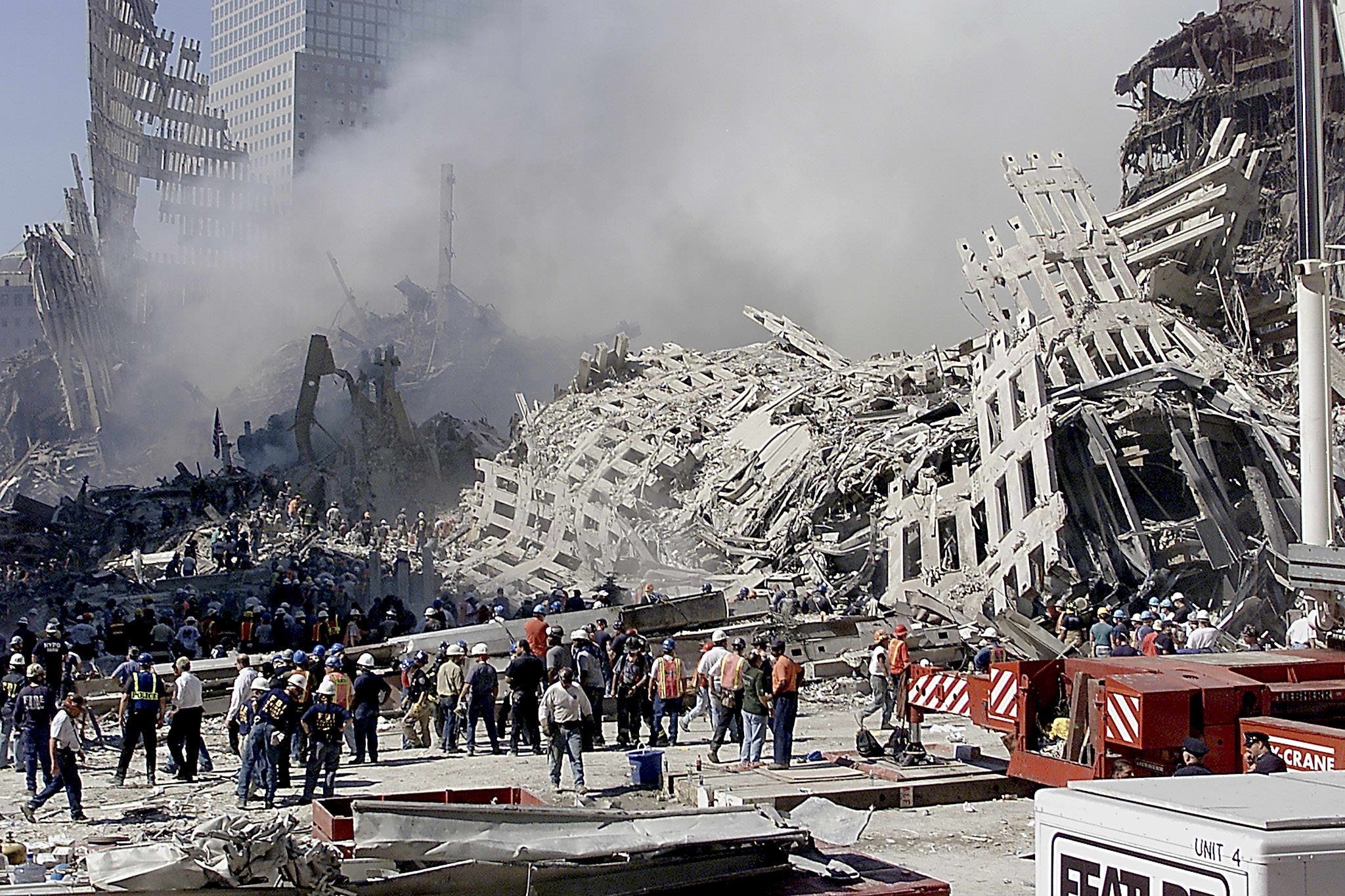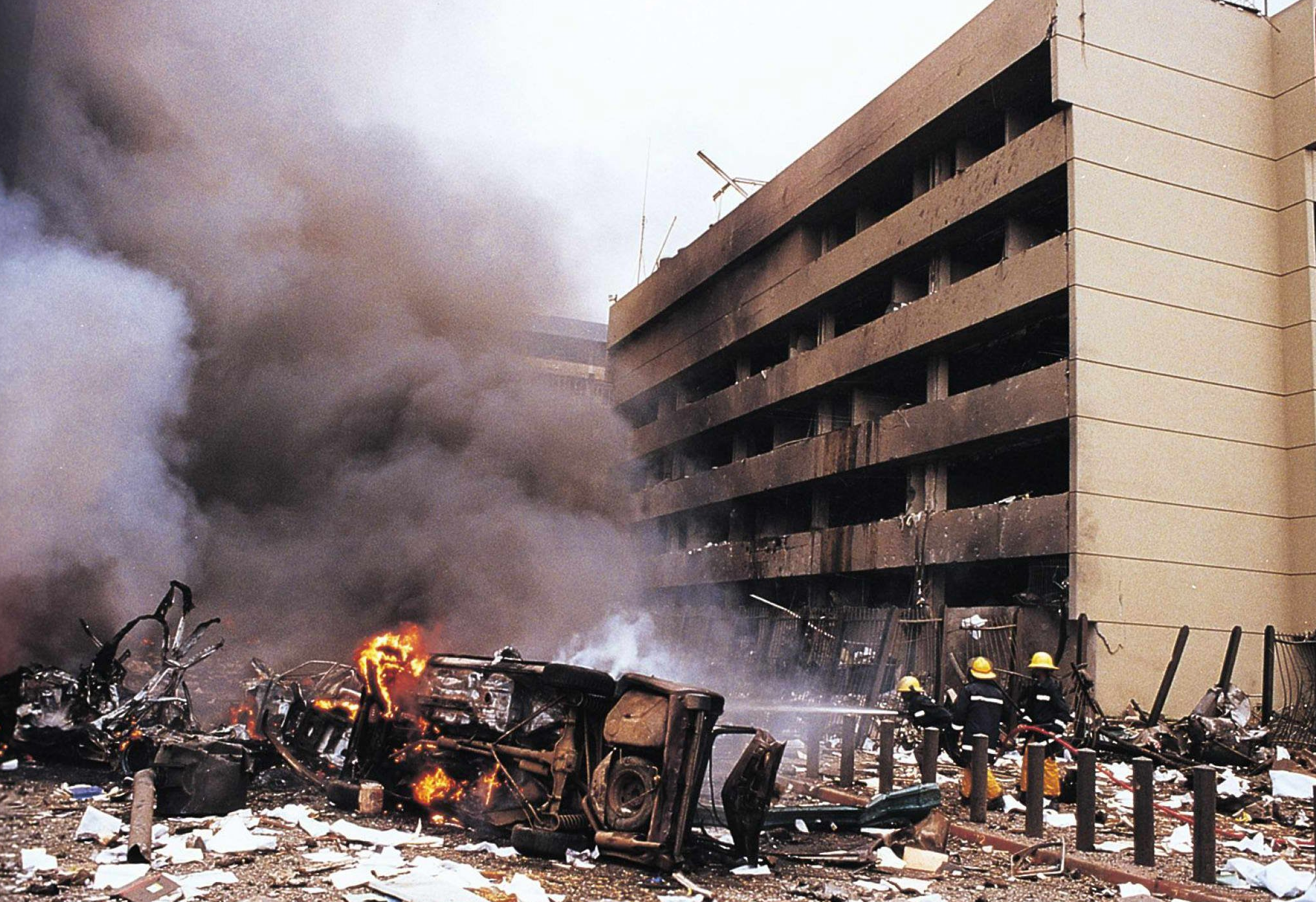ISS TODAY OP-ED
Organised crime helped bankroll 9/11 attacks and continues to fuel terror objectives

Links between organised crime and terrorism in Africa have made it difficult to curb both offences.
The confluence between terrorism and transnational organised crime is as old as the history of each, though analysis of their relationship is fairly recent. Research and policy on the nexus between the two have focused almost entirely on organised crime as a source of financing for terrorism.
The attacks in the United States (US) on 9 September 2001 (9/11) highlighted the links and challenged the traditional separation of the two crimes. One of the 9/11 Commission’s key findings was that this division had impeded law enforcement agencies from detecting and acting timeously to disrupt the planning for 9/11.
Although the attacks were carried out by terrorists, they were prepared and funded through organised crime channels. This combination unravelled the framing of organised crime as profit-driven in the United Nations Convention against Transnational Organized Crime. Profit is important, but the motive for such profit varies among perpetrators. For terrorists, the financial gain from organised crime isn’t an end in itself but a means to a bigger political, religious or ideological goal.
That means organised crime is not the exclusive domain of racketeers, syndicates or consortiums that seek profit, but instead attracts various criminal actors, including terrorists.

File photo dated 11 September 2001 shows hijacked United Airlines Flight 175 from Boston crashing into the south tower of the World Trade Center at 9:03 am in New York City. (Photo: Spencer Platt/Getty Images/AFP)
Many questions about 9/11 remain unanswered. However, the numerous transactions and covert criminal activities that underpinned the planning — documented by intelligence sources — confirm that without organised crime, 9/11 couldn’t have happened.
Beyond hijacking aircraft and flying them into buildings, the whole operation, from planning, tactics, procurement of materials and funding, to travel routes, relied on organised crime channels. The pivotal role that organised crime played in orchestrating 9/11 has not been fully analysed, perhaps due to the initial belief that Osama Bin Laden financed the attacks — a premise that has since been debunked.
The Commission documented numerous sources of funding that al-Qaeda and Bin Laden used, many relating to organised crime. It estimated the attacks cost between $400,000 and $500,000, of which $300,000 was deposited into American banks. This was mobilised from various sources, including zakat, charities and donations from individuals and groups with questionable integrity.
Funds were channelled through hawala, Al-Barakaat and various formal and informal financial facilitators, including banks and informal money transfer schemes. These transactions were steeped in corruption as many institutions looked the other way or failed to apply the rules.
The Commission couldn’t confirm reports of al-Qaeda’s involvement in opium and heroin trafficking in Afghanistan, counterfeit trademark goods in various Muslim countries, consumer coupon frauds and blood diamonds in Africa. However, these were believed to be al-Qaeda’s key sources of funding. Some reports claim Bin Laden’s involvement in drug trafficking with the Taliban amassed $50-million annually.

Fire and rescue workers search through the rubble of the World Trade Center in New York on 13 September 2001. (Photo: EPA-EFE/Beth A Keiser)
Apart from providing funding, organised crime informed Bin Laden’s tactics. Keeping the hijackers underground and undetected was vital. The strategy relied on covert and discreet organised crime operations to procure and conceal equipment and services. Al-Qaeda masterminds used fraud, deceit and corruption to navigate the security apparatus and plot the hijackers’ itineraries. To evade detection, travel plans involved multiple countries, and friendly or corruptible states were carefully selected as countries of departure.
The operation was expansive in terms of time and geography, to stretch the capacity of intelligence agencies. It was planned over three years and involved at least 24 countries and 23 US cities.
9/11 was not Bin Laden’s first attack using transnational organised crime channels. Three years before, he devised the bombing of the US embassies in Nairobi, Kenya and Dar es Salaam, Tanzania, killing 263 people and injuring over 5,000. The explosives used were trafficked from the Middle East and smuggled across borders.

Firemen in action in the aftermath of a terrorist attack on the US embassy in Nairobi, 8 August 1998, in which 213 people died. (Photo: EPA)
Before 9/11, the open involvement of terrorists, particularly Islamist groups, in organised crime such as drug trafficking, was highly contested. Members saw such activities as compromising their beliefs and contradicting the charges they laid against the regimes they targeted. 9/11 seemed to legitimise the use of organised crime to pursue jihad objectives.
The attacks inspired current terror groups such as al-Shabaab in Somalia, Boko Haram in the Lake Chad Basin, and Jama’at Nusrat al-Islam wal-Muslimin in the Liptako Gourma region of West Africa. The same is true for the Lord’s Resistance Army and Allied Democratic Forces in Uganda and the Democratic Republic of the Congo, and Séléka and Anti-Balaka groups in the Central African Republic.
These and other al-Qaeda and Islamic State affiliates are involved in organised crime activities such as drugs, arms and human trafficking, extortion, illegal mining, livestock theft, banditry and smuggling. These connections have been enabled by the popular perception that organised crime is a source of income to alleviate poverty, particularly in communities where government services are absent.
The problem with this complex overlap is that while terrorists and criminal syndicates are converging, policy responses are not. The key lesson from 9/11 and the global counter-terrorism effort over the past two decades is that ignoring this nexus leads to isolated and ineffective policies, which benefit criminal groups.
As the international community joins the US in commemorating 9/11, lessons learnt should guide responses to terrorism and organised crime. Preventing attacks calls for well-coordinated and integrated strategies that see organised crime and terrorism as two sides of the same coin, not separate crimes or acts perpetrated by distinct criminal groups.
Intensified efforts are needed to address the root causes, support bases and the ecosystem that sustains both offences. This holistic approach emphasises international cooperation and the active involvement of civil society organisations to bolster state actions. DM
Martin Ewi, Regional Organised Crime Observatory Coordinator for Southern Africa, Enact, Institute for Security Studies (ISS) Pretoria.
First published by ISS Today.


















 Become an Insider
Become an Insider
Honestly though, organized crime funds intelligence agencies like CIA, NSA, FSB, Mossad, and others. The laws won’t be easily changed.
High time for an international response to international crime. Maybe an Interpol that has teeth, not just a bureaucratic clearing-house.